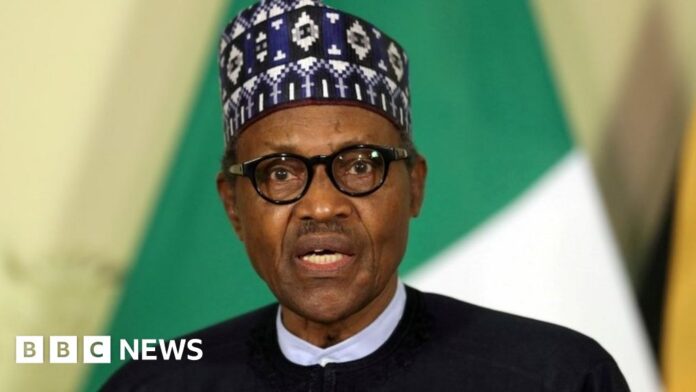Africa’s most populous nation, Nigeria, is currently embroiled in a corruption trial involving a former central bank chief accused of forging the signature of the country’s former president to illegally obtain $6 million.
The allegations were made in a Nigerian court, where a former aide to the ex-president Muhammadu Buhari testified that the signature on the documents authorizing the transfer of the funds was forged. This dramatic revelation sheds light on the pervasive corruption that has plagued Nigeria for years.
The former Central Bank chief, Lamido Sanusi, has denied the allegations, claiming that the transfer was made with the knowledge and approval of the ex-president. However, the testimony from the former aide has brought the authenticity of the documents into question and raised serious doubts about the integrity of the transaction.
The case has garnered widespread attention and is seen as a significant test of Nigeria’s commitment to fighting corruption within its government institutions. It comes at a time when the country’s leadership is under increasing pressure to address the issue and implement meaningful reforms to combat the deep-rooted graft that has hindered its progress.
The trial of the former central bank chief has become a symbol of the challenges facing Nigeria as it strives to overcome the pervasive corruption that has hindered its development and undermined public trust in its government. The revelations in the courtroom have underscored the urgent need for accountability and transparency in the country’s public institutions.
As the trial continues, the eyes of the nation and the international community will be fixed on the proceedings, hoping for a fair and just resolution that holds those responsible for corruption to account. It is a critical moment for Nigeria, and the outcome of the trial will undoubtedly have far-reaching implications for the country’s future.

